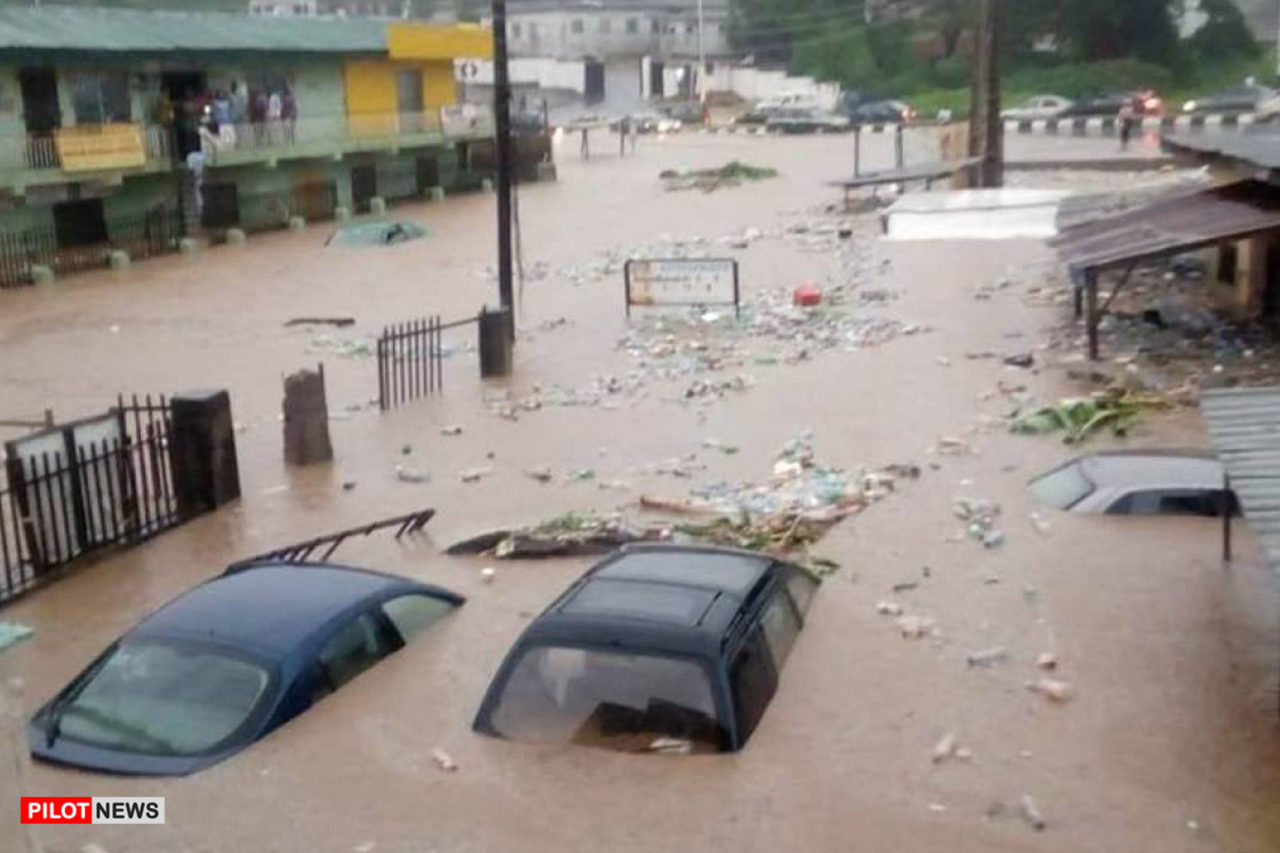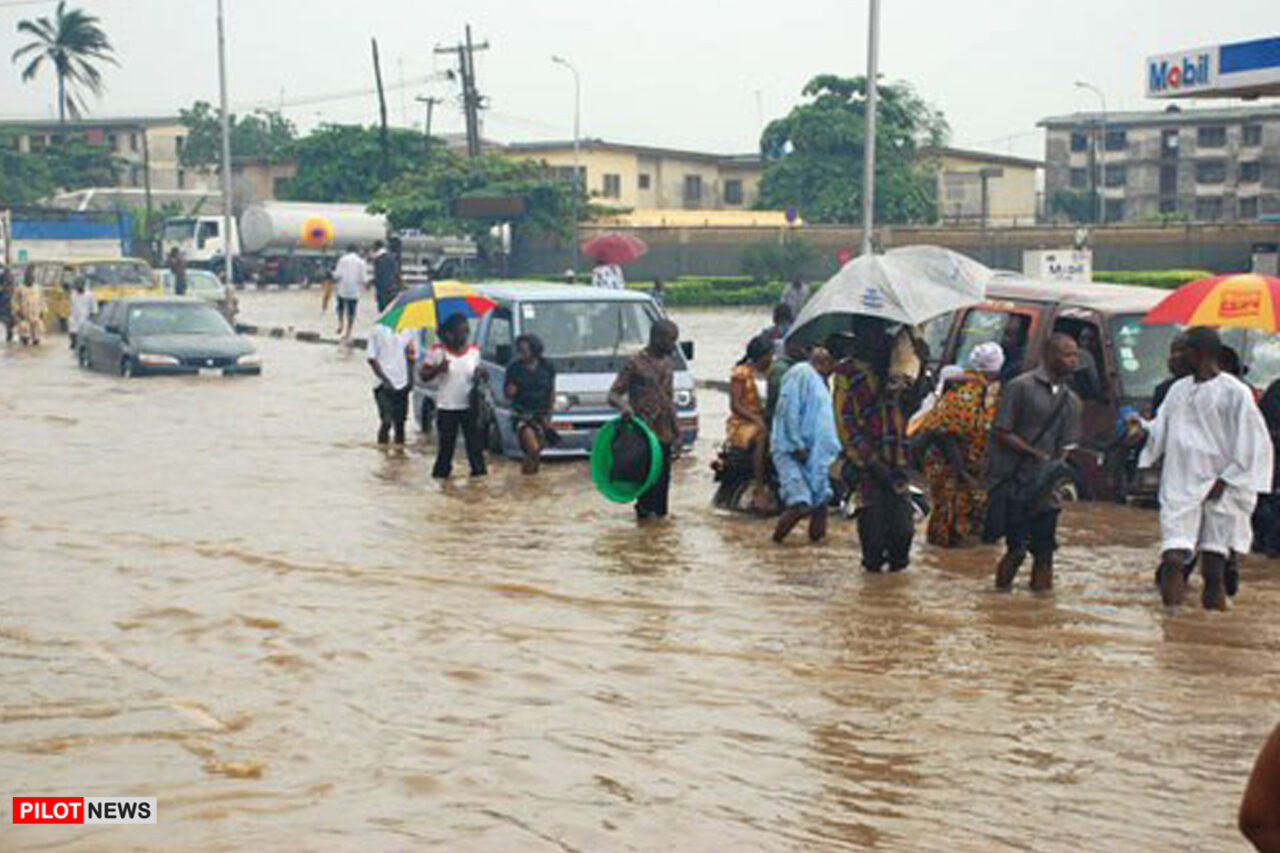ABUJA — Minister of Water Resources, Suleiman Adamu says severe flooding will affect at least 28 states this year based on the 2021 Annual Flood Outlook shows.
The states are Abia, Akwa Ibom, Anambra, Bauchi, Bayelsa, Benue, Cross River, Delta, Ebonyi, Edo, FCT, Gombe, Imo, Jigawa, Kaduna, Kano and Kebbi, Kwara, Lagos, Nasarawa, Niger, Ogun, Oyo, Rivers, Sokoto, Taraba and Zamfara.

Adamu made the disclosure on Thursday at the public presentation of the 2021 Annual Flood Outlook (AFO) of the Nigeria Hydrological Services Agency (NIHSA) in Abuja.
“This year, we will be grappling with the two threats of the ongoing COVID-19 pandemic and the impending floods as predicted in the AFO.
“It is expected from the forecast that 121 LGAs in 28 states will fall within the highly probable risk areas.
“The states surrounding Rivers Niger and Benue are, without doubt, going to experience severe flooding.
“The flood projections show varying severity across parts of the country.
“In summary, the 2021 AFO forecast indicates that 302 Local Government Areas (LGAs) in 36 states including the FCT will fall within the moderate probable flood risk areas.
“Floods come with attendant health risks through the contamination of potable water sources. The 2021 flooding will be exacerbated by the continuing ravages of the COVID-19 pandemic,” Adamu added.
The Minister said a proper mechanism has been put in place to prepare Nigerians to confront the disaster whenever it occurred.
He noted that the 2012 flood brought about massive destruction of lives and property across the country.
The minister urged Nigerians to do all within their power to give succor to the populace grappling with the twin problems.
“Stakeholders, including policymakers and tiers of government should rise to the challenge of the impending flooding and take appropriate measures such as clearing of waterways and flood paths to contain it”.
“The ministry was controlling water flow in streams through the construction of dams, reservoirs, artificial lakes and rivers, with a view to making it less destructive,” He said.
In a remark, the Director General of the NIHSA, Mr Clement Nze, stressed the need for state and local governments to restore rivers to their natural courses and reduce indiscriminate encroachment on waterways.
“Refusal by some states to adhere to early warnings about floods, had resulted in the devastating effects being recorded annually in parts of the country.
“Enforcement of town planning codes in the country would go a long way to managing construction of houses and drainage appropriately.
“We are calling on states to relocate people that live in waterways and flood plains.
“They should desilt their rivers, drainage and water channels. Removal of refuse, weeds and water hyacinth is very important,” Nze said.
The Director General, National Emergency Management Agency (NEMA), Mohammadu Muhammed, noted that the agency had enjoyed robust partnership with NIHSA as a critical stakeholder in disaster management.
Muhammed said the agency had also established three automatic weather observation stations in Nasarawa, Gombe State and Ekiti to enhance flood forecast and management in Nigeria.
According to him, NIHSA’s AFO has been a veritable tool for NEMA in flood preparedness, mitigation and response since 2013.
- Pollution: Ogun State Government Clamp Down On Three Churches - April 24, 2024
- Troops Rescues 44 Women, and Children In Timbuktu Triangle - April 24, 2024
- Sokoto State: 15 District Heads Fired - April 24, 2024


